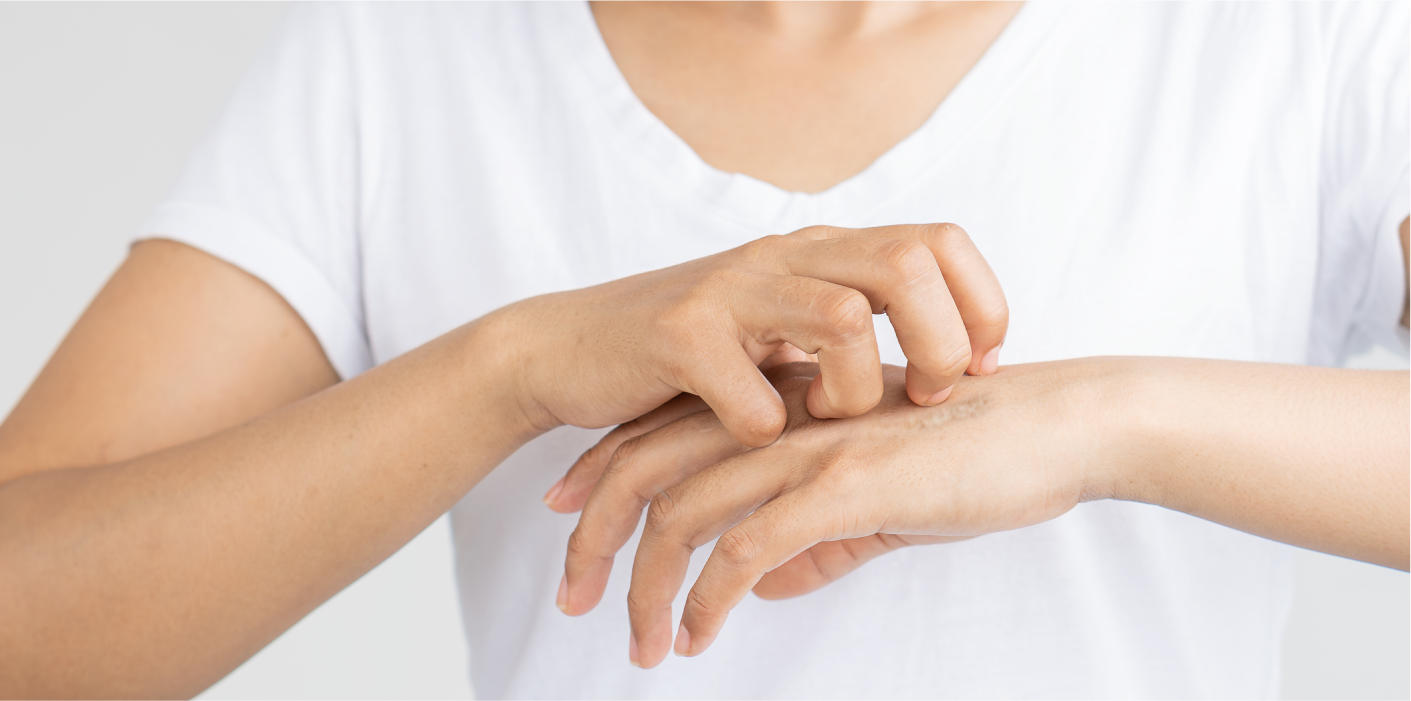Itchy scars: what to do?
Even though the itchy sensation may drive you to scratch your scar, try as much as you cannot do it. A scratched scar may lead to the erosion of skin cells which can subsequently expose your skin to new infections.
Pruritus, or itching, is defined as an unpleasant sensation related to a desire to scratch. When skin cells are undergoing a regrowth process, this will trigger nerve fibres to secrete chemicals like histamine, which is an itch inducer.
But have you ever thought about this feeling? It is thought that itching is a protective mechanism which alerts the body of a possible threat (i.e., mosquito, thorn, etc.), and once the threat is removed, the sensation cycles down. However, the problem starts when it is difficult to turn off the itch-scratch cycle.
You are not alone, millions of people suffer from debilitating itch associated with different conditions such as atopic dermatitis, chronic idiopathic urticaria, psoriasis and scars. A study shows that 26% of patients reported pain and 44% of patients reported itch in association with their scars, regardless of the type and size. It is also known that burn scars can make your skin stretch tightly which may trigger itchiness.
So, what can you do to reduce the itch? A cool compression on the scar or a firm massage on the scar area can help reduce this sensation. It’s also important to gently wash the area to remove dead cells that may be causing irritation to your skin. Any actions that avoid irritation of the area of your scar will help reduce the itching.
Hydrating your skin is crucial and KELO.CELL Biogel presents itself as a great option to achieve that. This innovative silicone gel will help to prevent your skin from dehydration which may help in relieving the itching and discomfort associated with your scar.
• What To Know About Old Scar Itches. (2021, June 15). WebMD. https://www.webmd.com/skin-problems-and-treatments/what-to-know-about-old-scar-itches
• Parnell L. K. S. (2018). Itching for Knowledge About Wound and Scar Pruritus. Wounds: a compendium of clinical research and practice, 30(1), 17–36.
• Farrukh, O., Goutos, I. (2020). Scar Symptoms: Pruritus and Pain. In: Téot, L., Mustoe, T.A., Middelkoop, E., Gauglitz, G.G. (eds) Textbook on Scar Management. Springer, Cham. https://doi.org/10.1007/978-3-030-44766-3
• NHS website. (2021b, November 18). Scars. Nhs.Uk. https://www.nhs.uk/conditions/scars/
-
How to prevent and treat post-infection scarring?
A clinical study showed that infected wounds were related with worse cosmetic rating after a 30-day follow-up. Also, scar revision surgery was more likely considered in patients with infected wounds.
2 min. read
Read more -
The Psychological Impact of Visible Scars
If small injuries heal without leaving a mark, almost every wound leaves a scar. Whether they are small or big, dark, pale, raised or flatten, scars may negatively affect our self-esteem and confidence, especially the most visible ones.
2 min. read
Read more



